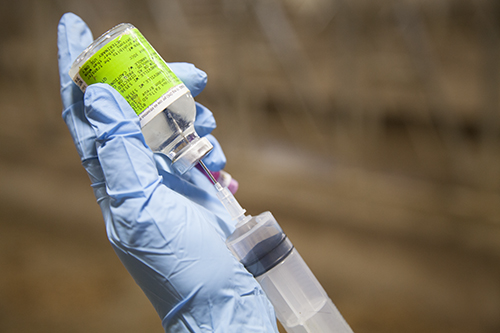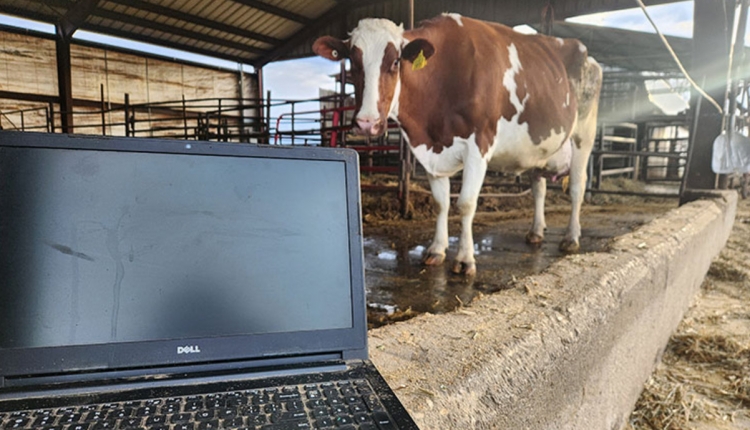
Needlestick injuries are usually minor, but they can be serious, explained Jeffrey Bender, D.V.M., from the University of Minnesota School of Veterinary Medicine, at the North American Agricultural Safety Summit in Minneapolis, Minn.
Most common injuries are skin infections, allergic reactions and deep tissue wounds that may require surgery. Less common but dangerous injuries include miscarriages due to hormone products, serious cardiovascular events cased by products like tilmicosin (Micotil), suppression or coma from sedatives like xylazine, systemic infections and allergic reactions to antibiotics. The products that are of most concern are tilmicosin (Micotil), sedatives, oil-based adjuvants, Brucessa abortus Strain RB51 vaccine, modified live vaccines and Johne's vaccine.
Farm workers need to slow down when giving injections. Animals must be properly restrained using the correct equipment and technique. People should not put needle caps in their mouth or carry needles and syringes in pockets. Bent needles must always be discarded, not reused or restraightened. A sharps container should always be used, and people should not try to remove needles from the container.
If a needlestick injury occurs, the affected area should be washed with soap and water immediately. All needlestick injuries need to be reported to management and a health care provider should be consulted. Needlestick injury can result in injury and loss of work for both workers and veterinarians. Awareness is limited, and a need for comprehensive prevention programs is real on farms.
A farm owner needs to train and retrain all employees about careful needle handling, safe injection procedures and types of drugs administered. Provide the proper safe handling equipment and appropriate staffing. Needles with protective devices, such as retractable needles or hinged syringe caps, would improve safety. Employees must be reminded to use caution when administering products of concern, and pregnant employees should not handle or inject hormones.
Factsheets that can be printed and shared with farm employees can be found through the University of Minnesota Upper Midwest Agricultural Safety and Health Center website: http://umash.umn.edu/resources/fact-sheets.html.

The author is an associate editor and covers animal health, dairy housing and equipment, and nutrient management. She grew up on a dairy farm near Plymouth, Wis., and previously served as a University of Wisconsin agricultural extension agent. She received a master's degree from North Carolina State University and a bachelor's from University of Wisconsin-Madison.









